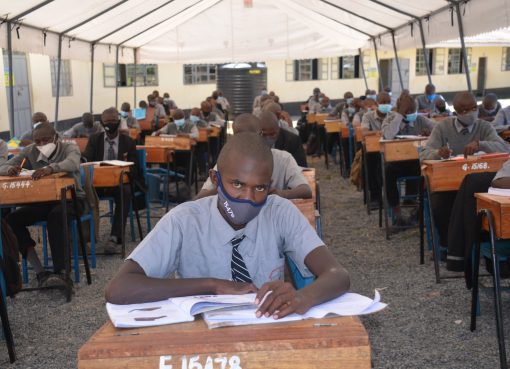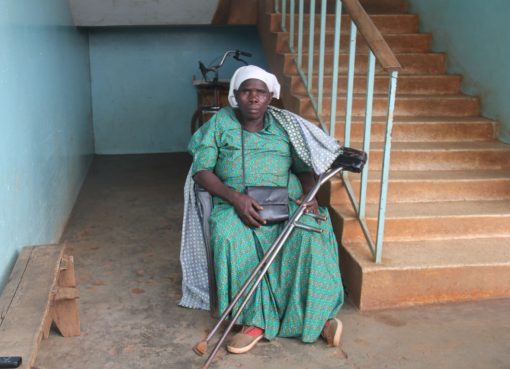Stakeholders in Kisii county have been urged to join hands in the fight against teenage pregnancies, Human Immuno-Deficiency Virus (HIV) infections and gender-based violence (GBV), commonly referred to as the ‘triple threat.’
Speaking at Nyabururu Grounds on the outskirts of Kisii town, Health Principal Secretary (PS) Susan Mochache called upon various community stakeholders to work together and end the three challenges that have continued to undermine the health, education, and economic empowerment of young girls.
“This fight against the ‘triple threat’ is not a battle that the government will win alone. That’s why the government is carrying out campaigns to educate health stakeholders on the importance of enlightening communities on their responsibility in protecting the country against these challenges,” Mochache noted.
Mochache pointed out that the recently launched campaign to end the ‘triple threat’ among adolescents is of great importance given that young people below the age of 24 years account for 60 percent of the total population in the country.
In 2021, Kisii County was among the counties with a high number of teenage pregnancies having recorded 66500 pregnancies among adolescents between the ages of 10-19 years.
The PS said the increase in teenage pregnancies can be attributed to the failure of parents to sensitize their children on sex education and urged the chiefs to conduct youth barazas where the young people can be sensitized on such vices.
Mochache noted that most of the girls who get pregnant while studying had been forced to drop out of school in order to take care of their children thereby promoting the poverty cycle.
On matters of GBV, she discouraged the settlement of gender-based violence cases in kangaroo courts and instead, urged parents to report the cases to the police so that the perpetrators can face the law.
Further, the PS noted that gender-based violence cases have been on the rise saying that in every 10 cases reported, six of them involve children aged 10-19 years totaling 63 percent of the cases.
She lauded the efforts of community health volunteers (CHVs) in disease prevention and community health education adding that they play a very central role in health care.
“With the community health volunteers, we will prevent many diseases from getting to hospitals as we can educate people on the right diet and the importance of seeking early treatment before any health condition worsens,” Mochache said.
On his part, the Ministry of Health Ag. Director of Medical Services, Dr, Andrew Mulwa said it is the responsibility of community health workers and leaders to sensitize young people on the risks of HIV.
Mulwa noted that Kenya uses about Sh25 billion every year in HIV prevention and treatment and will continue to face additional economic burden as a result of new HIV infections being registered among adolescents.
According to data from the Ministry of Health, 51 percent of new infections are associated with adolescents between the ages of 15-24 years and 63 percent of adolescent deaths between the ages of 10-19 years are as a result of HIV.
The Director urged the parents and community stakeholders to protect their children against experiencing any ‘triple threat’ by providing them with age-appropriate sex education that does not expose the teenagers to harmful sex materials.
Mulwa added that the National Adolescent Sexual and Reproductive Health (ASRH) Policy provides guidelines that community leaders and parents can use to educate adolescents on healthy living, including healthy relationships.
The forum was also attended by Kisi County Executive Committee Member for Health, Sarah Omache, Kitutu Central Deputy County Commissioner, Elizabeth Atemi, National Government Administration Officers (NGAO) and residents of various sub-counties in Kisii County.
By Vincent Nyambane and Anthony Kamau





